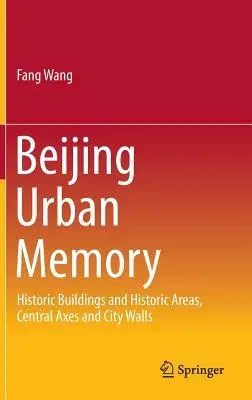Fang Wang
(Author)Beijing Urban Memory: Historic Buildings and Historic Areas, Central Axes and City Walls (2016)Hardcover - 2016, 13 May 2016

Qty
1
Turbo
Ships in 2 - 3 days
In Stock
Free Delivery
Cash on Delivery
15 Days
Free Returns
Secure Checkout

Print Length
248 pages
Language
English
Publisher
Springer
Date Published
13 May 2016
ISBN-10
9811006776
ISBN-13
9789811006777